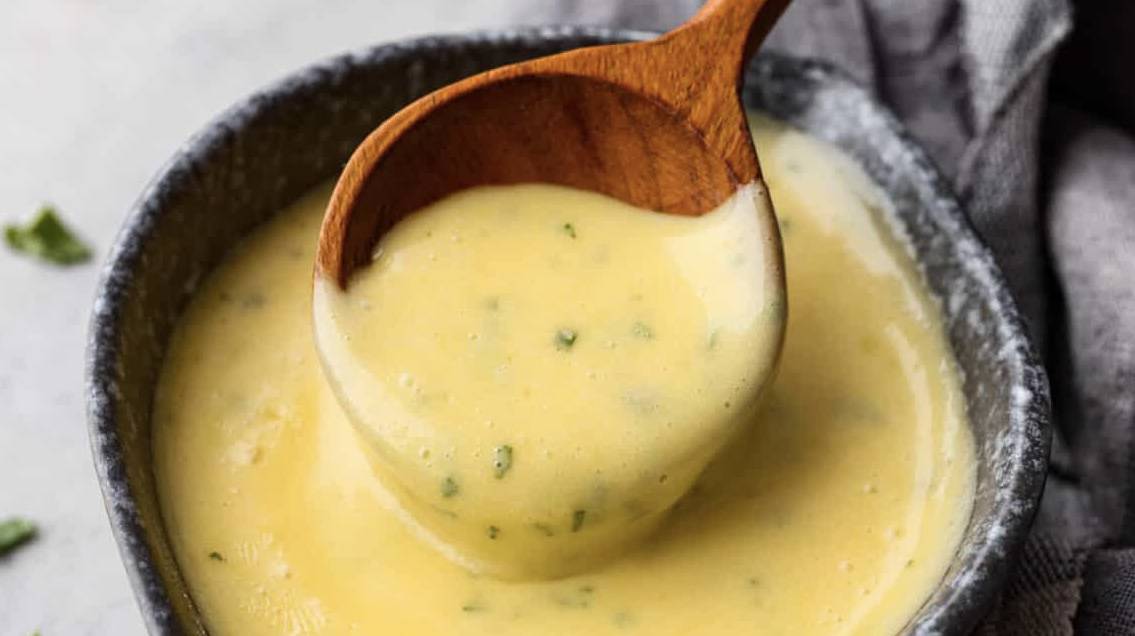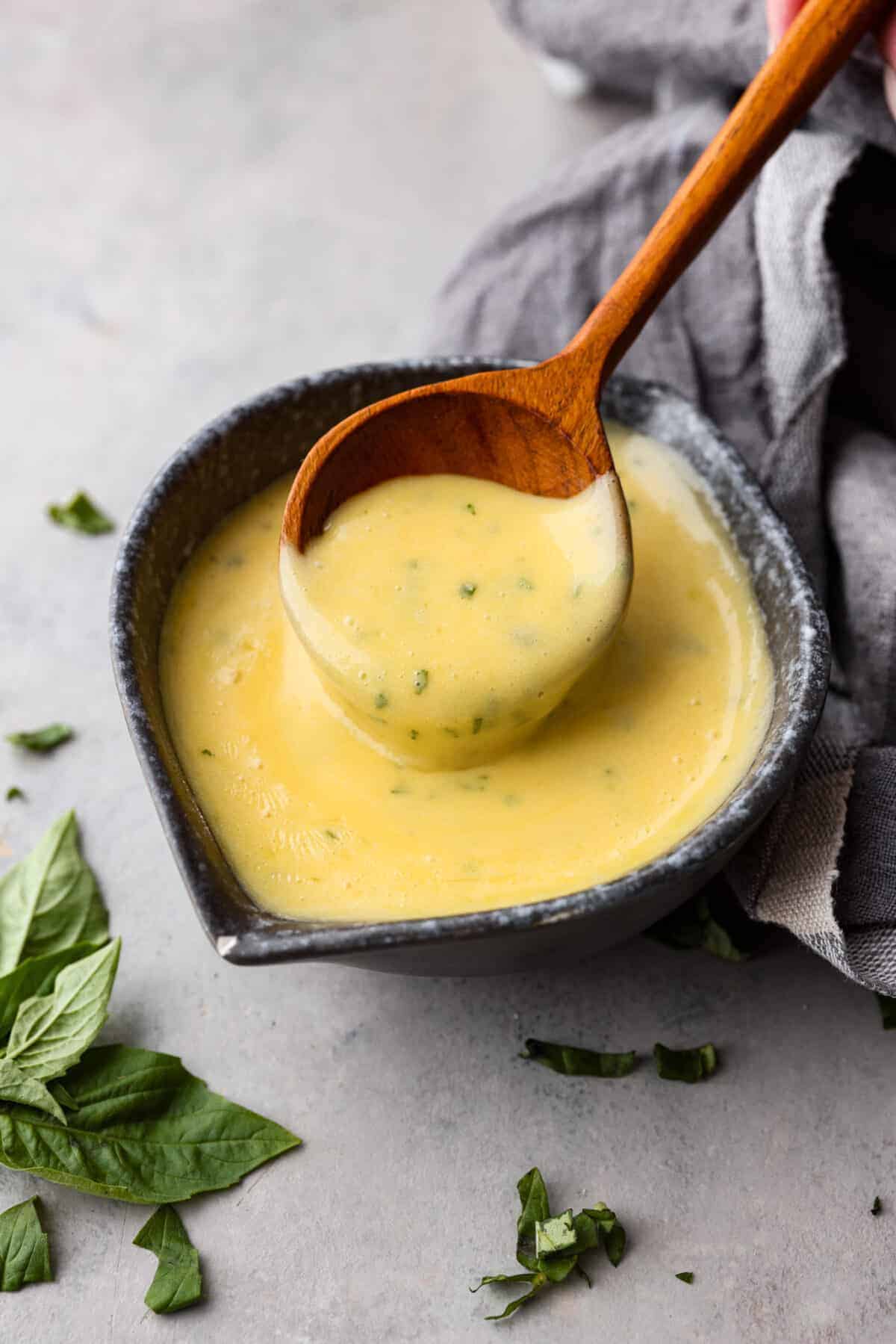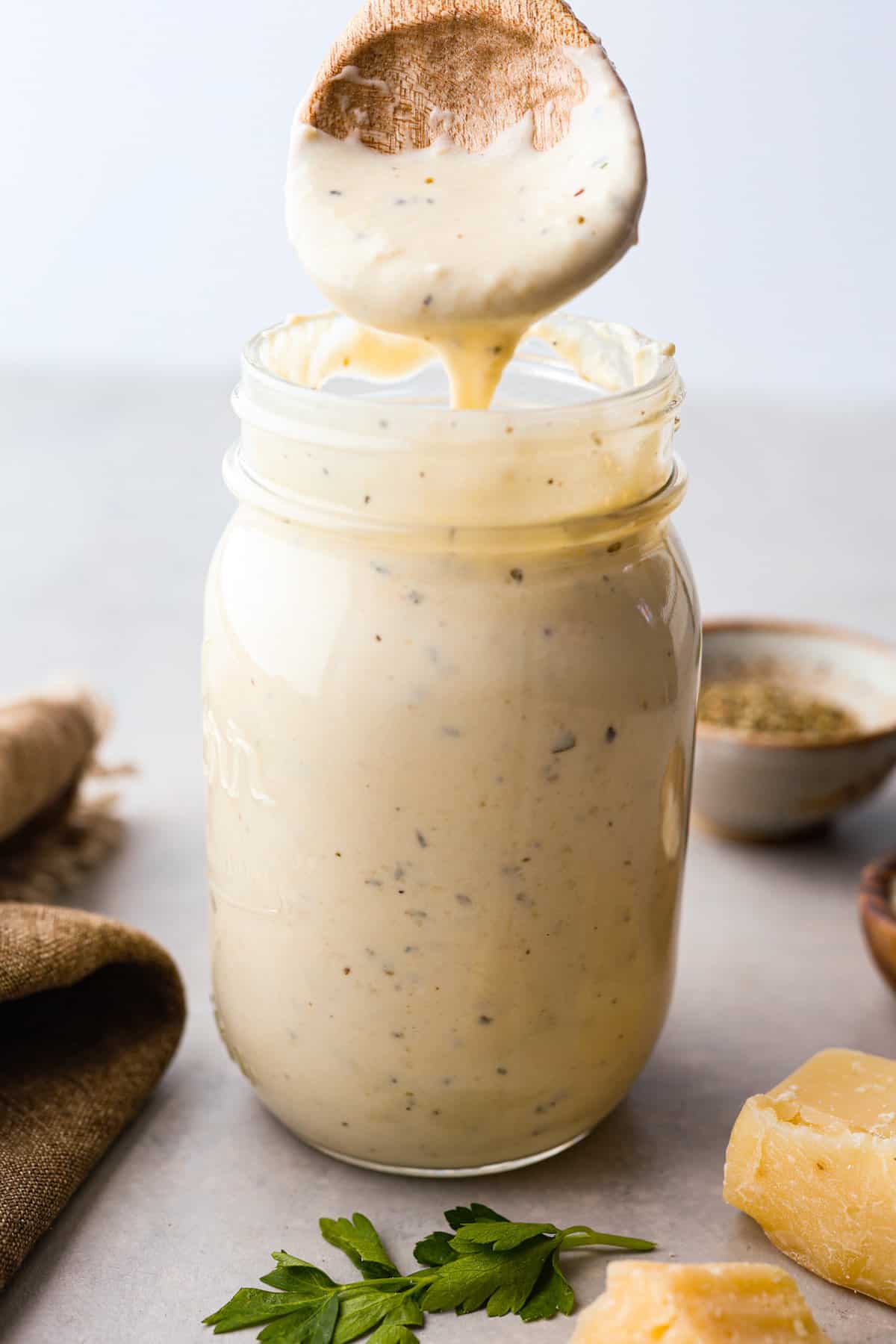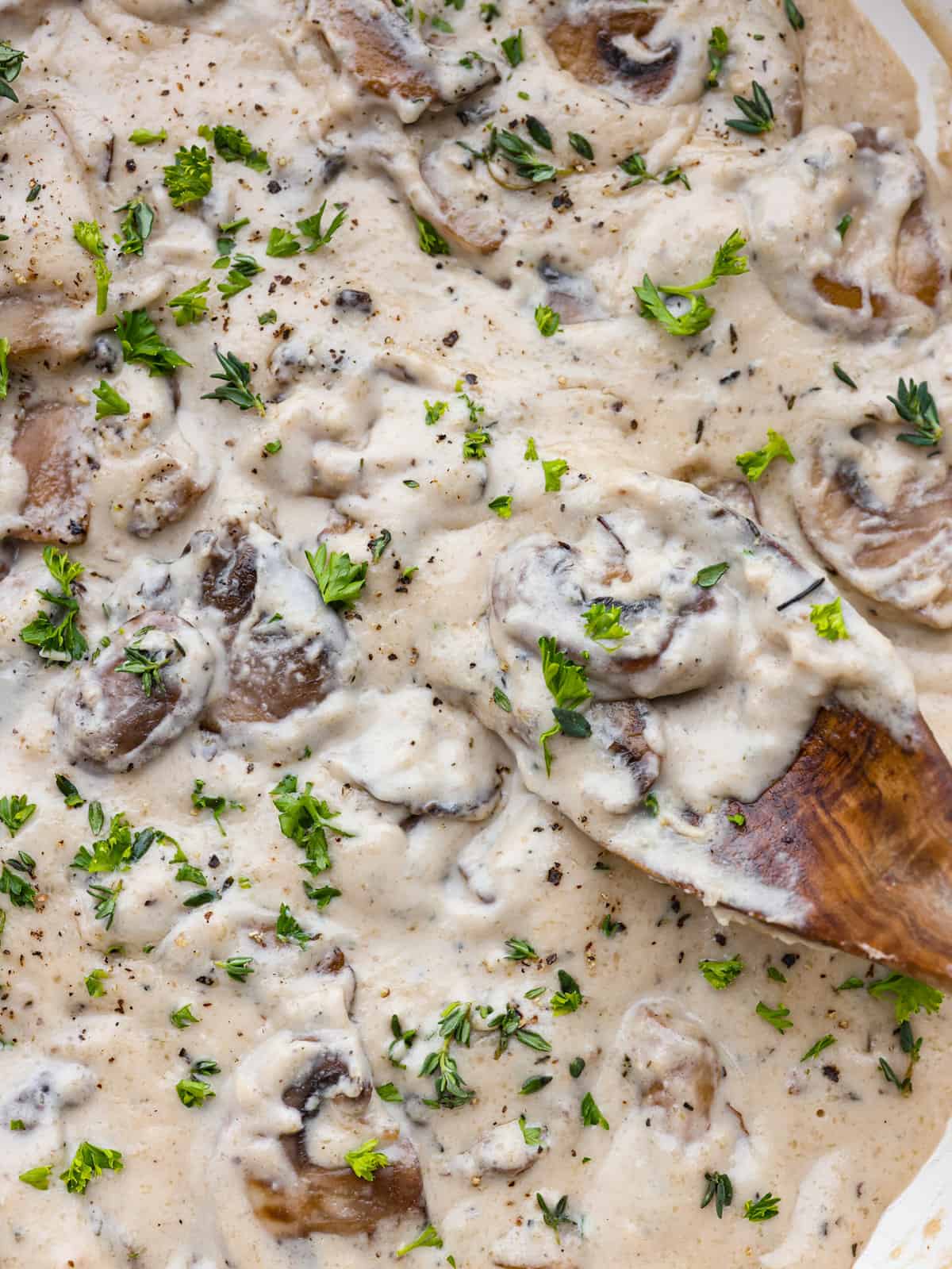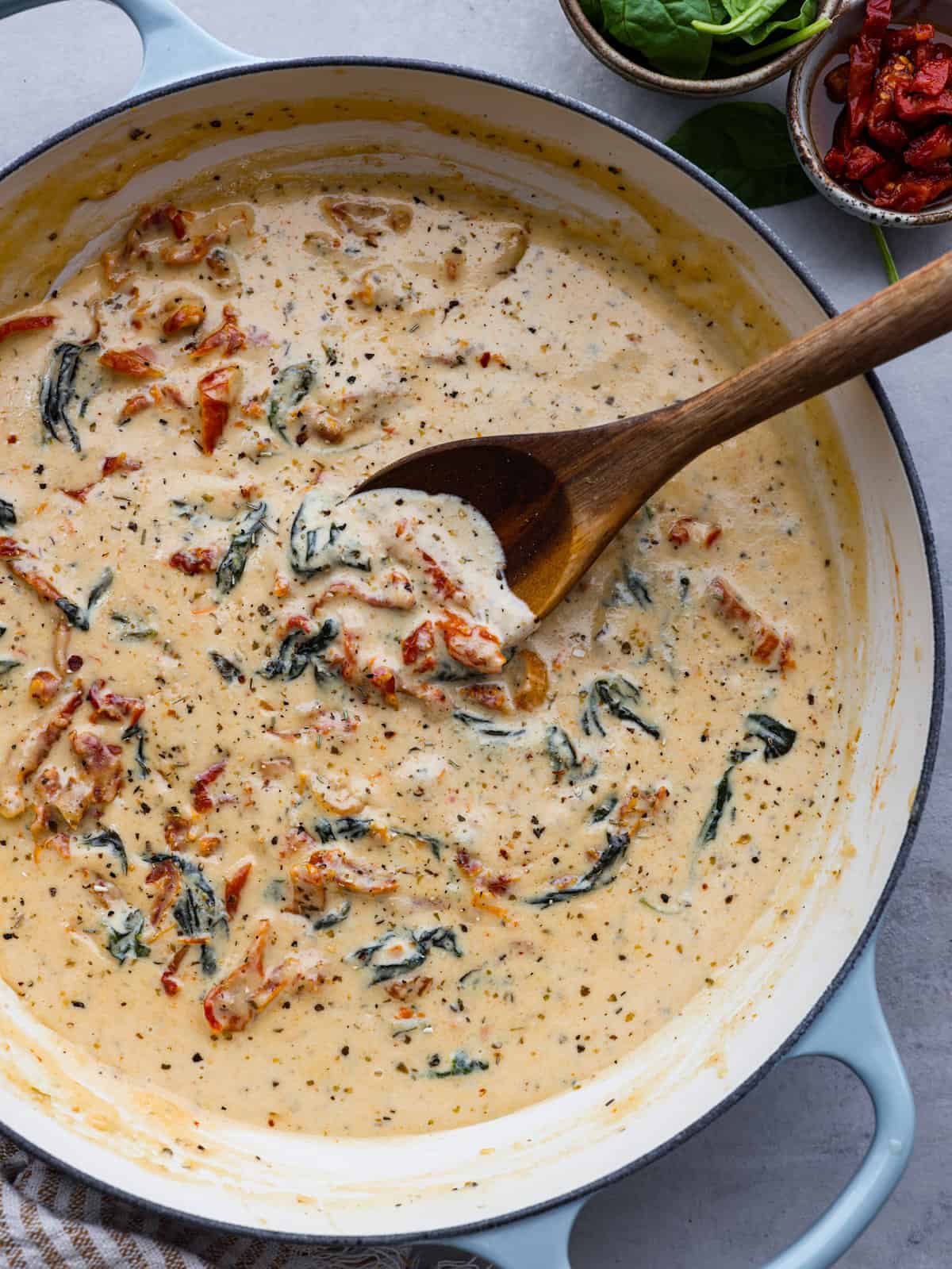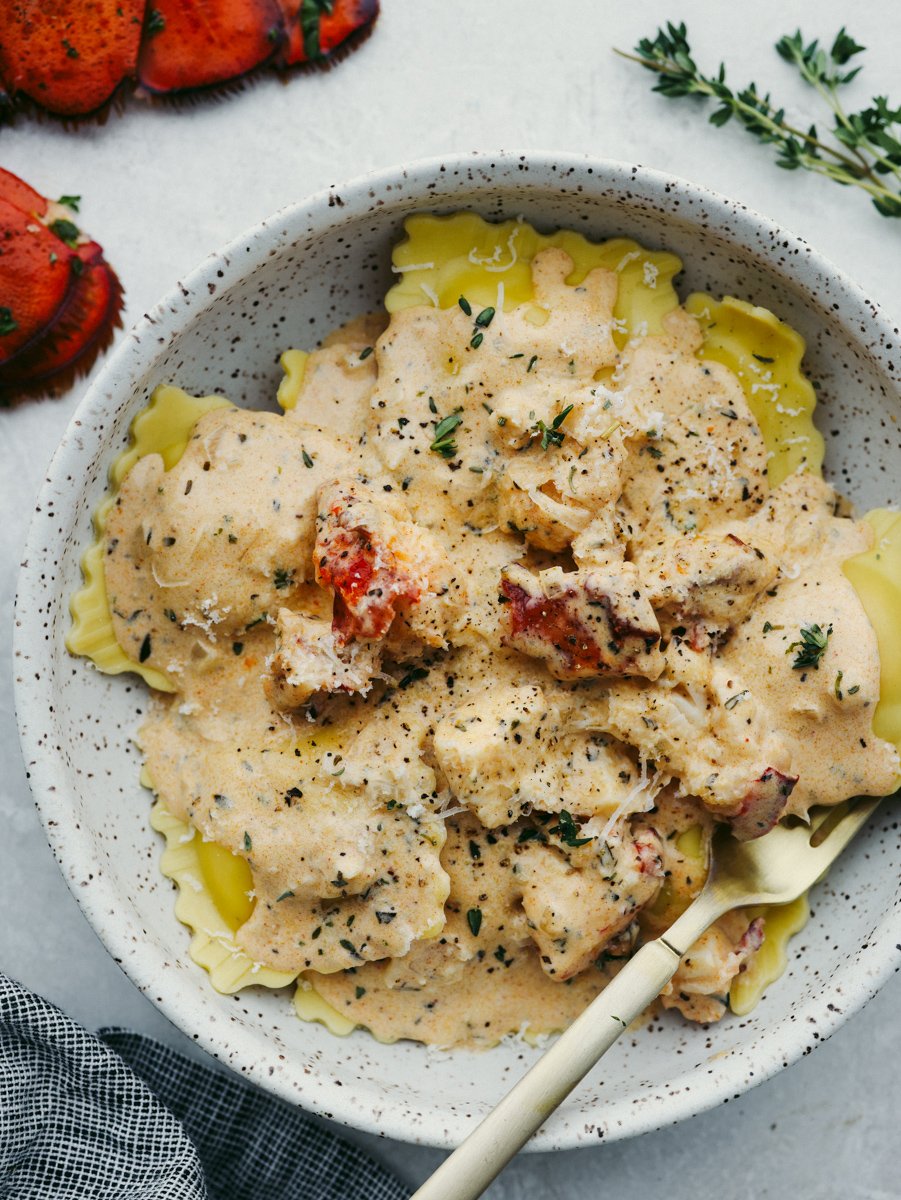This website may contain affiliate links and advertising so that we can provide recipes to you. Read my disclosure policy.
A creamy French steak sauce that you’ll want to put on everything! Bearnaise sauce is a tasty variation of hollandaise, infused with shallot, tarragon, and lemon!
A homemade sauce can take any meal from good to great. A few more recipes to try: hollandaise sauce, bechamel sauce, and white sauce!




Béarnaise Sauce Recipe
Béarnaise sauce is like an upgraded version of hollandaise sauce, adding a punch of tangy and herby flavors. The mix of shallots, tarragon, and white wine vinegar gives it some extra oomph. To make it, you carefully melt the butter, mix in those tasty seasonings, then whisk it up with egg yolks until it’s all smooth and creamy. Drizzle it over your grilled steak or chicken, and trust me, it’s a game-changer. Even seafood like lobster or salmon gets a tasty upgrade with this sauce! It’s so creamy and flavorful.
This sauce isn’t just for the main course – it’s the best addition to any dish. Whether you’re spicing up your eggs Benedict, or adding extra flavor to roasted veggies, bearnaise is the way to go. It’s a little pot of magic that turns ordinary meals into gourmet goodness.
Ingredients in Bearnaise Sauce
Bearnaise sauce uses a lot of simple ingredients, which is one of the things that makes it so great! The key here is making sure you add fresh shallots, herbs, and a splash of white wine to make the flavor pop. Find exact measurements in the recipe card below.
- Unsalted Butter: Butter makes the sauce rich and delicious. I used unsalted butter since we add salt separately, but you can also use salted butter and just omit the extra salt.
- Shallots: Shallots add a mild, slightly sweet onion flavor.
- White Wine Vinegar: This adds a little tanginess and a nice sour touch to balance the richness of the sauce.
- White Wine: For an extra bright, fruity flavor. Any dry white wine will work.
- Fresh Tarragon: Tarragon is a special herb that adds a unique, slightly sweet and herbal taste to the sauce, making it stand out.
- Peppercorns: Peppercorns bring a bit of spiciness, adding extra flavor to the sauce.
- Lemon Peel: Lemon peel gives a fresh, citrusy taste that makes the sauce zesty and bright.
- Egg Yolks: Egg yolks help hold the sauce together and make it creamy.
- Salt: Salt makes all the flavors pop and enhances the taste according to what you like.
How to Make It
Bearnaise sauce can be a little tricky to get just right, but as long as you follow each step carefully yours will turn out perfectly! I’ve broken this recipe up into 2 main parts. Clarifying the butter, and preparing the rest of the sauce.
Clarify Your Butter
- Melt Butter: Add the butter to a small saucepan and turn the heat as low as you can. This will melt the butter so slowly that the milk solids sink to the bottom and the fat will rise to the top.
- Clarified Butter: After 10 minutes or so the butter will be completely melted. Then turn off the heat and carefully pour the fat into a separate container. Use a spoon to carefully spoon off the last bit of fat. Discard the remaining liquid. You now have clarified butter. Set aside until needed.
Prepare the Sauce
- Cook Shallots and Herbs: In another small saucepan, add the shallots, white wine vinegar, white wine, 1 tablespoon of chopped tarragon, peppercorns, and lemon peel. Heat over medium until simmering, and then turn to low and cook until reduced by half.
- Strain: Use a fine mesh sieve to strain out the solids, using the back of a rubber spatula to press out all the liquid. Discard the solids.
- Simmer: Bring a medium-sized pot with 1-½ inches of water to a simmer over medium heat.
- Prepare Eggs: Add the egg yolks and reduced liquid to a glass bowl large enough to sit on top of the pot of water without the bottom of the bowl touching the water. Place the bowl on the pot and whisk the egg yolks vigorously until they have thickened to a pale foam.
- Add Butter: Remove from the heat and slowly add the clarified butter, while continuing to whisk vigorously. I like to place a damp towel or silicone pot holder under the bowl to help hold it in place while I do this.
- Whisk: The bearnaise sauce will thicken as you whisk. If it becomes too thick, you can add a tablespoon or two of the hot simmering water. Be sure to whisk it as you add the water to avoid scrambling the eggs.
- Add Seasonings: Once all the butter has been incorporated, add the remaining tablespoon of tarragon and salt to taste. Then serve immediately.




Tips and Variations
These are a few simple ways to ensure your béarnaise sauce turns out just the way you like it.
- Adjust the Consistency: If you like a chunky sauce, you can skip the step where you strain the solids from the white wine vinegar reduction (although you will want to pick out the peppercorns, which can be tedious.)
- Making the Sauce Without Wine: No white wine? Replace it with more white wine vinegar!
- Fresh Herbs: Tarragon is traditional, but in a pinch fresh basil will work for a similar flavor profile.
- Make it In a Blender! This is not the traditional way to make bearnaise sauce, but it works well and takes a lot less whisking power. After you have made your clarified butter and white wine vinegar reduction, add the egg yolks, reduced liquid, and a big pinch of salt to a blender. Blend for 30 seconds before slowly pouring the clarified butter in while the blender is still going. Taste and adjust the salt according to your liking. Stir in the chopped tarragon and serve.
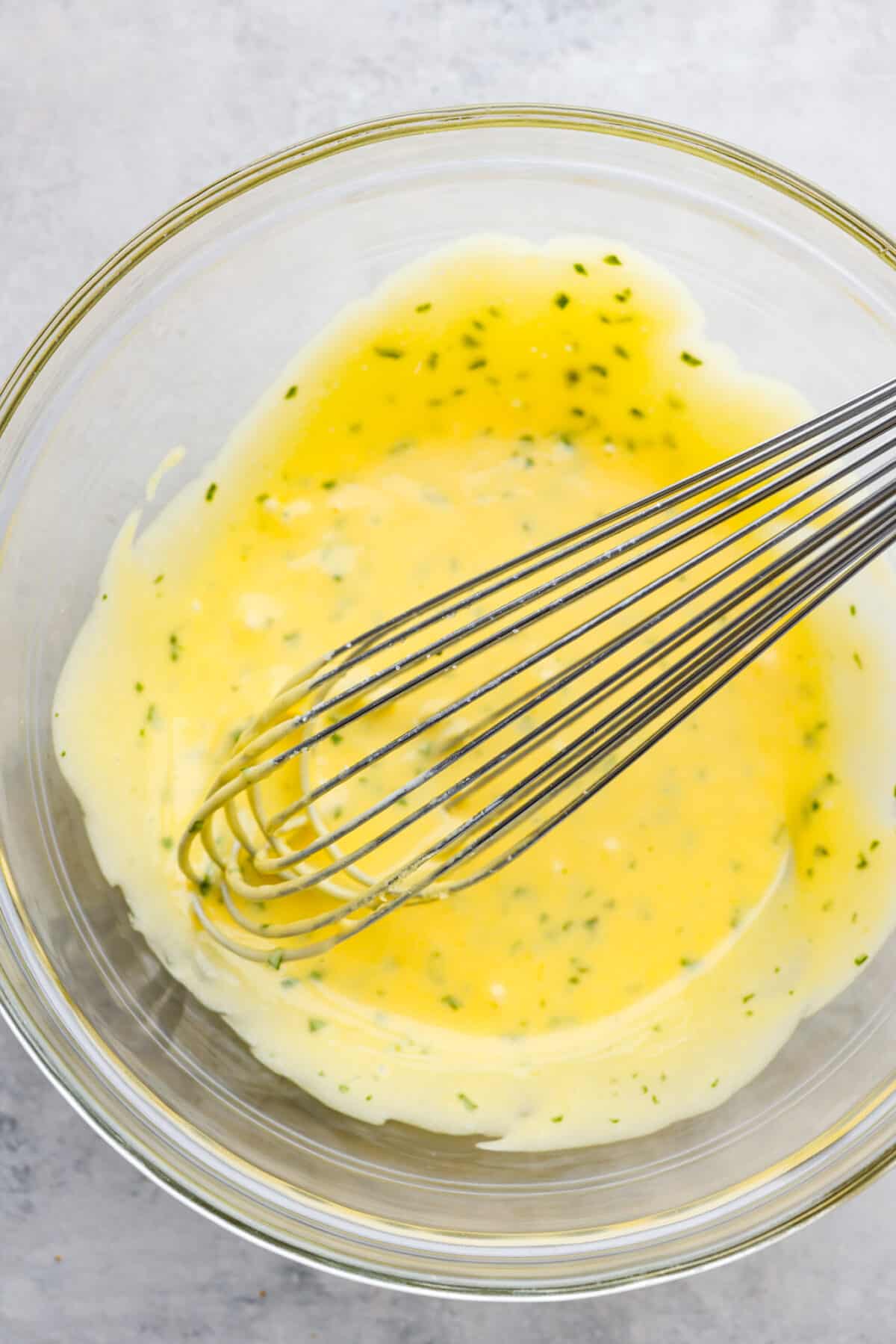



How Long Does Bearnaise Sauce Last?
Bearnaise is best served shortly after it has been made. If you need to make it in advance, store it in the fridge in an airtight container for up to 2 days.
Reheat your bearnaise sauce very gently by either microwaving it in 10-second intervals until it is warmed and runny, or warming it in a glass bowl over a pot of simmering water. Whisk continuously until warmed and thinned down. With either method, be careful to not heat it too quickly or too long otherwise the sauce can split or the eggs can scramble.
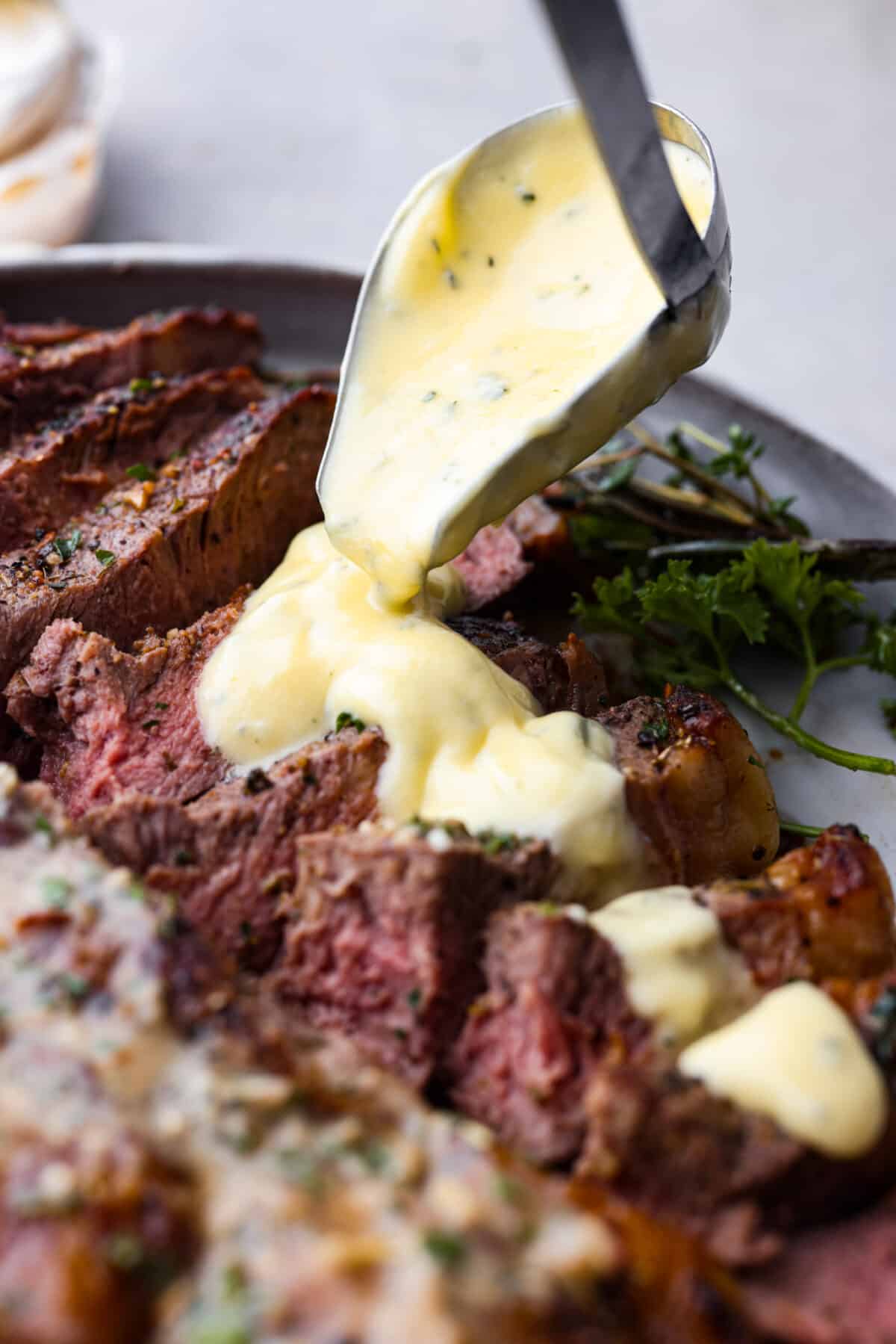



More Homemade Sauce Recipes
Pin this now to find it later
-
Add the butter to a small saucepan and turn the heat as low as you can. This will melt the butter so slowly that the milk solids sink to the bottom and the fat will rise to the top.
-
After 10 minutes or so the butter will be completely melted. Turn off the heat and carefully pour the fat into a separate container. Use a spoon to carefully spoon off the last bit of fat. Discard the remaining liquid. You now have clarified butter. Set aside until needed.
-
In another small saucepan, add the shallots, white wine vinegar, white wine, 1 tablespoon of chopped tarragon, peppercorns, and lemon peel. Heat over medium until simmering, and then turn to low and cook until reduced by half.
-
Use a fine mesh sieve to strain out the solids, using the back of a rubber spatula to press out all the liquid. Discard the solids.
-
Bring a medium-sized pot with 1-½ inches of water to a simmer over medium heat.
-
Add the egg yolks and reduced liquid to a glass bowl large enough to sit on top of the pot of water without the bottom of the bowl touching the water. Place the bowl on the pot and whisk the egg yolks vigorously until they have thickened to a pale foam.
-
Remove from the heat and slowly add the clarified butter, while continuing to whisk vigorously. I like to place a damp towel or silicone pot holder under the bowl to help hold it in place while I do this.
-
The sauce will thicken as you whisk. If it becomes too thick, you can add a tablespoon or two of the hot simmering water. Be sure to whisk it as you add the water to avoid scrambling the eggs.
-
Once all the butter has been incorporated, add the remaining tablespoon of tarragon and salt to taste. Serve immediately.
Calories: 484kcalCarbohydrates: 6gProtein: 4gFat: 50gSaturated Fat: 31gPolyunsaturated Fat: 2gMonounsaturated Fat: 14gTrans Fat: 2gCholesterol: 268mgSodium: 18mgPotassium: 215mgFiber: 1gSugar: 2gVitamin A: 1764IUVitamin C: 3mgCalcium: 82mgIron: 2mg
Nutrition information is automatically calculated, so should only be used as an approximation.
This story originally appeared on TheRecipeCritic

